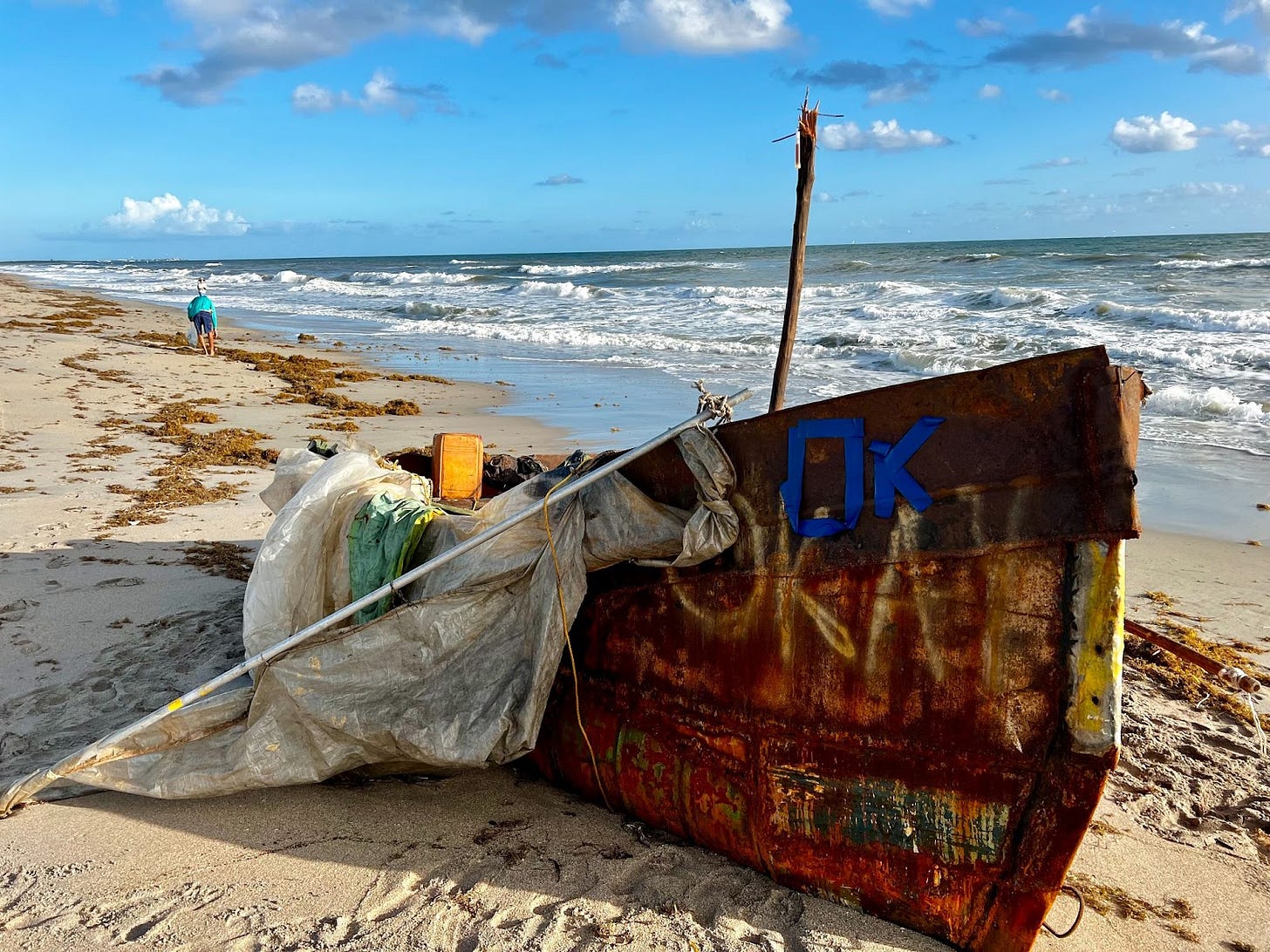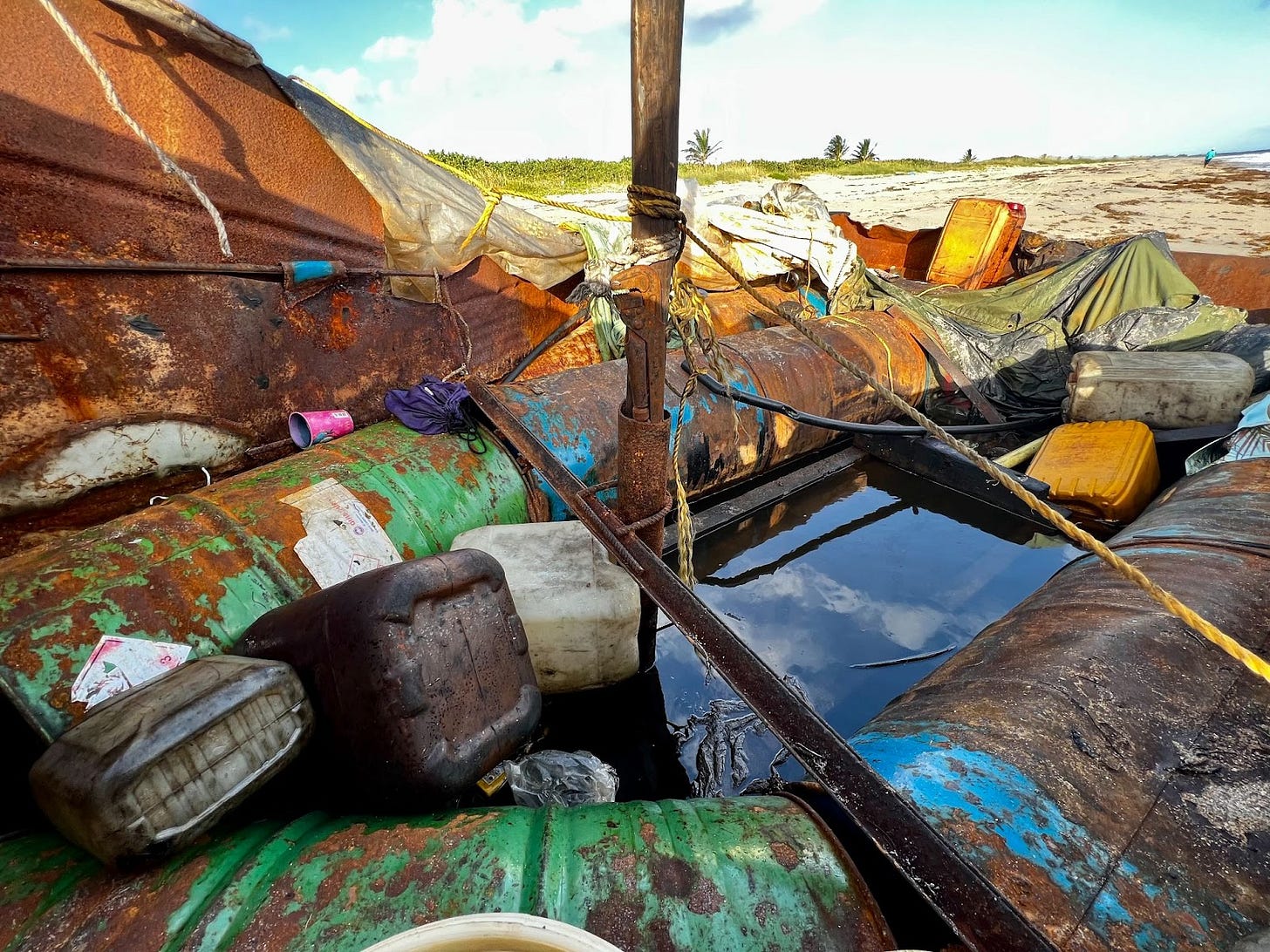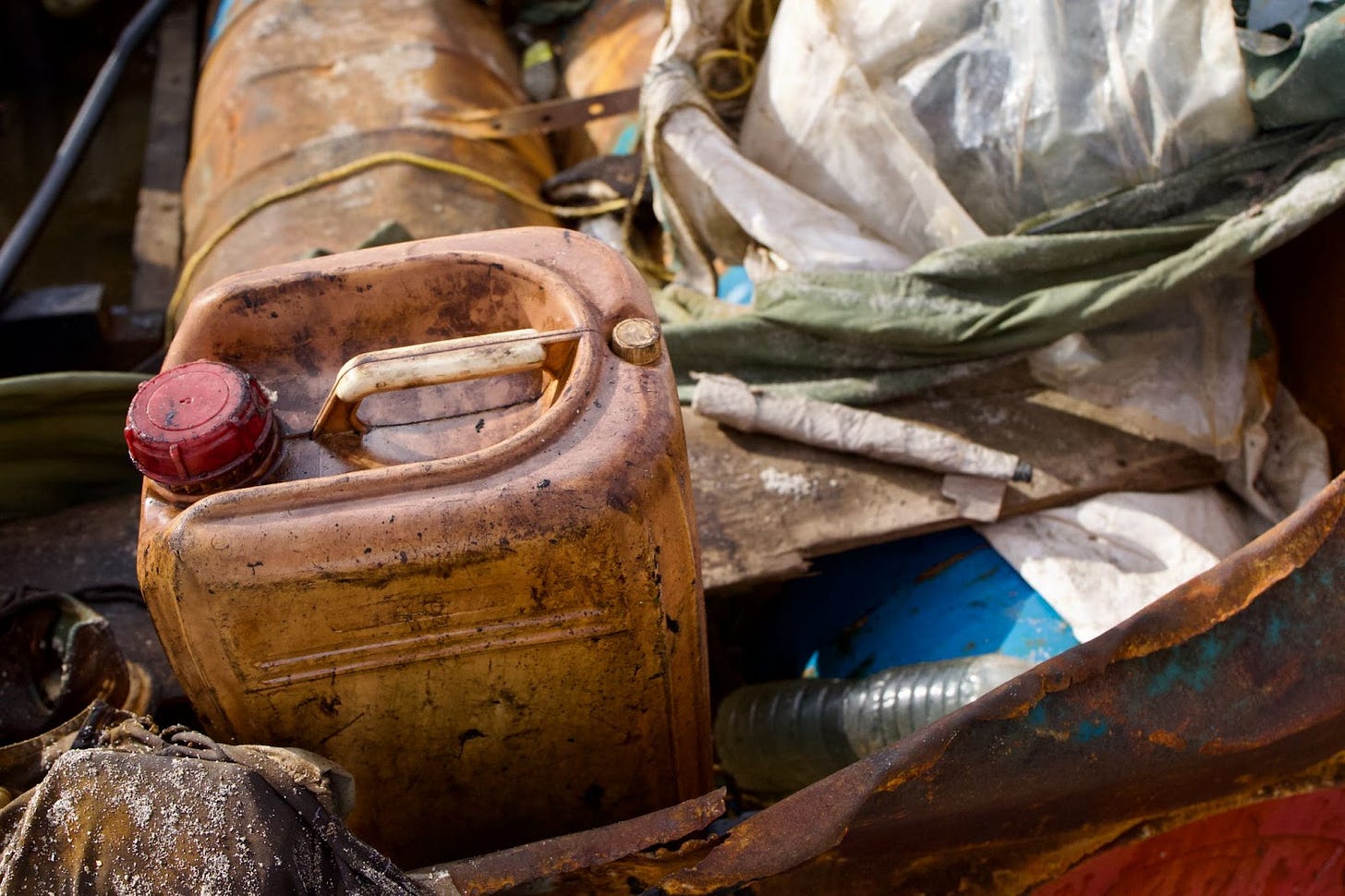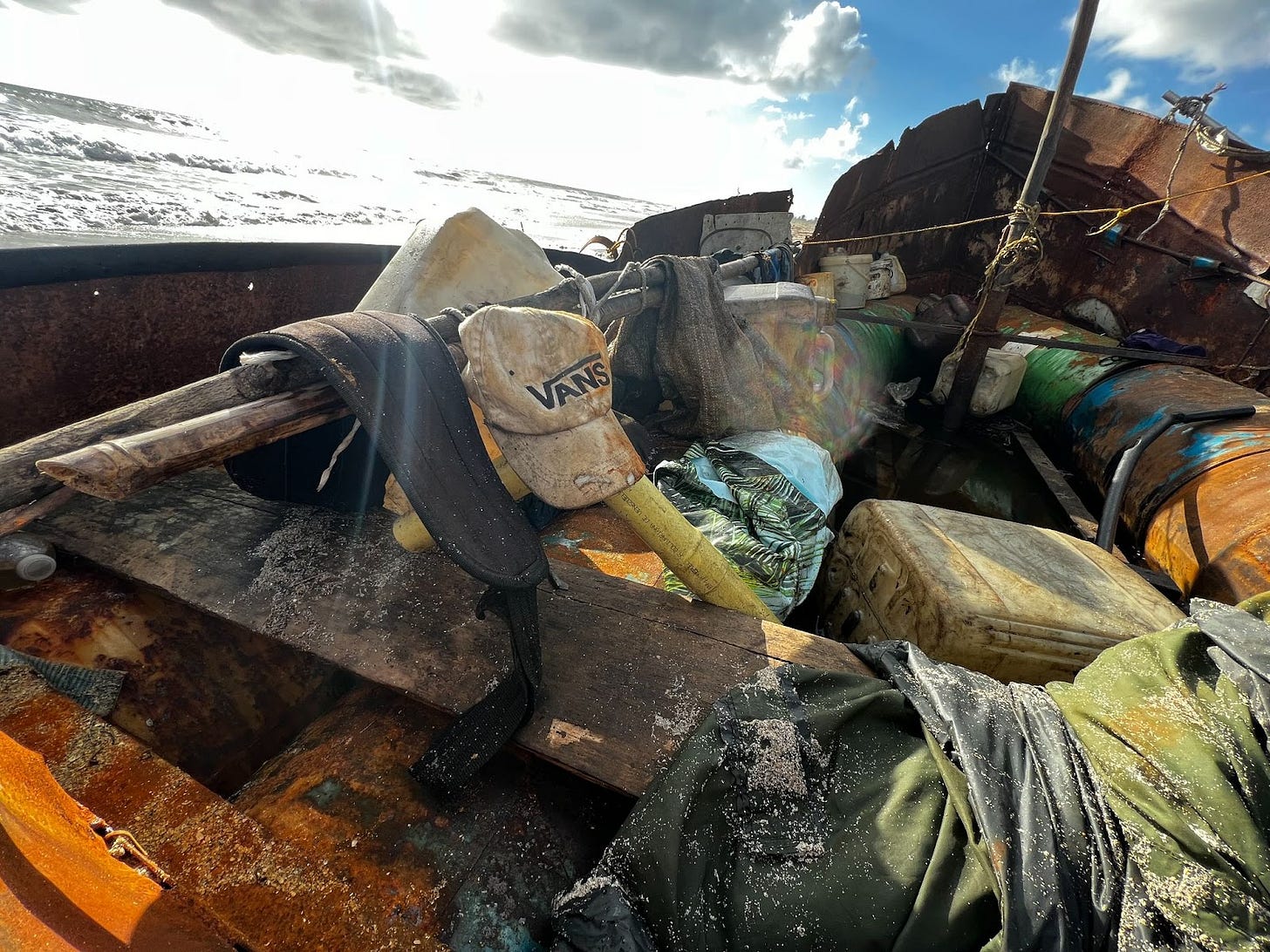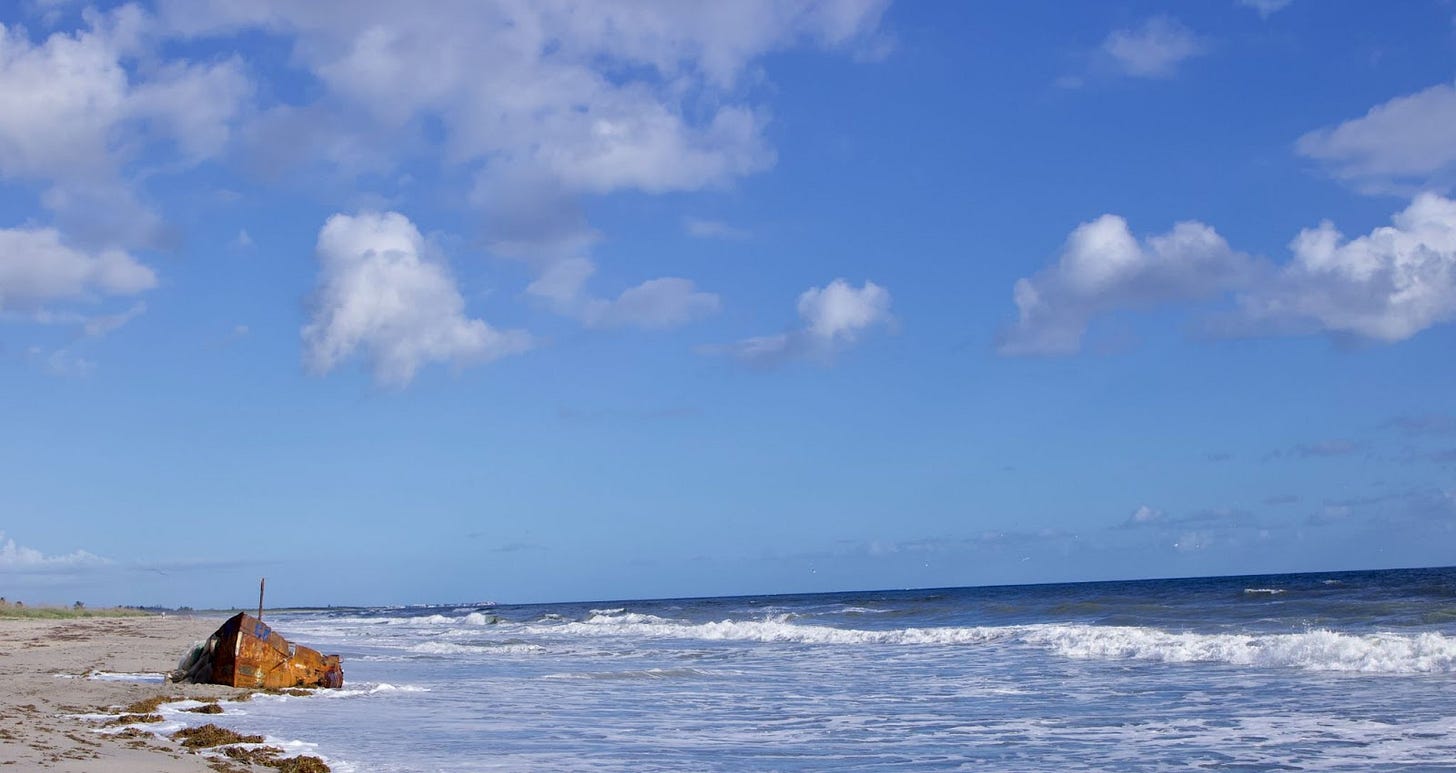Note from Lethal Minds:
Bulletin From The Borderlands is a joint project between Lethal Minds and some of the most talented OSINT analysts and independent journalists working today. Our goal is to provide you with a clear, accurate, and informative view of the world, free from censorship or bias. The Bulletin will bring you the facts, our analysis, and our evidence. We hope you find our work helps you better understand the complicated and increasingly volatile world in which we live.
Be informed, be prepared, be lethal.
In This Issue:
The Americas : Covered in this issue by Meridian News
Bolsonaro is voted out of power by only 2% of the Brazilian national vote. Meridian News brings us some incredible photographs taken on the southern coast of Florida, illustrating the human cost of the catastrophic conditions in Haiti. Venezuela’s economy somehow finds another circuit of the drain to circle, and South American drug trafficking proves to be entirely resistant to policing, recession, or interorganizational conflict.
Europe : Covered in this issue by S2 Forward
Europe is currently undergoing the largest military mobilization on the continent since WWII. Russian forces continue to struggle to reorganize under persistent and coordinated assault by Ukrainian forces. Russian government spokesmen have made repeated mention of the possible use of low yield, or tactical level, nuclear weapons to reverse their losses in Ukraine.
East Asia and Oceania: Covered in this issue by Good Political and Croatoan Report
China suddenly cuts aid to the small nations of the Pacific. Australia continues to funnel aid to Ukraine, and American B-52s enter the Pacific for the first time in decades. Behind of all this, Xi Ji Ping achieves his third term, and effective status as President for life.
Central Asia and the Mid East: Covered in this issue by Analyze Educate
Iran’s protests continue to grow. Similar protests have expanded into Afghanistan as young women push back against Taliban rule. NRF forces have capitalized on Taliban instability to achieve some moderate gains in the rural areas of the northern provinces.
Africa : Covered in this issue by Croatoan Report and Northern Provisions
Ethiopia goes back to war with Tigray, as ceasefires fail once again. Elsewhere on the continent, the long shadow of French colonial and modern misrule and misadventure has begun to rear its ugly head.
The Big Points:
The Highlight: A Turning Tide
It’s not been a good month for autocracy. Iran is going through what is rapidly beginning to look like a revolution. In Ukraine, the Russian Federation hasn’t been able to stymie Ukrainian advances. Russian casualties are now estimated to have reached 70,000.
The Long Term Concern: Getting Back To Stable
Our long term concern remains what it has been for weeks. How does the global community get back to stable. The rapid reverses faced by the Russians and the unprecedented scale of the Iranian uprisings have slowly started to suggest a route forward. The world’s main sources of instability may themselves be unstable. Expect us to examine this further going forward.
See Also:
Ukrainian forces attack the Russian Black Sea Fleet with a wave of drones. In response, Russian revokes safe passage for ships transporting grain from Ukrainian ports.
The Russian government claims to have mobilized 80,000 new conscripts to fight in Ukraine.
Iran’s government formally accuses the United States of being behind the widespread protests that have paralyzed to Iranian government.
150 South Korean civilians die and thousands are injured in a massive stampede at an outdoor concert near Seoul.
The CCP concludes the 20th Party Congress, granting Xi Ji Ping his third and effectively permanent term as President of the PRC.
The United States positions hundreds of thousands of barrels of oil and natural gas off Europe’s coast in preparation for massive European energy demand this winter.
The Russian Federation pulls its troops and Wagner operatives from all foreign campaigns for service in Ukraine.
The Americas
Haiti: Mounting Refugee Crisis and U.N. Considers Direct Action
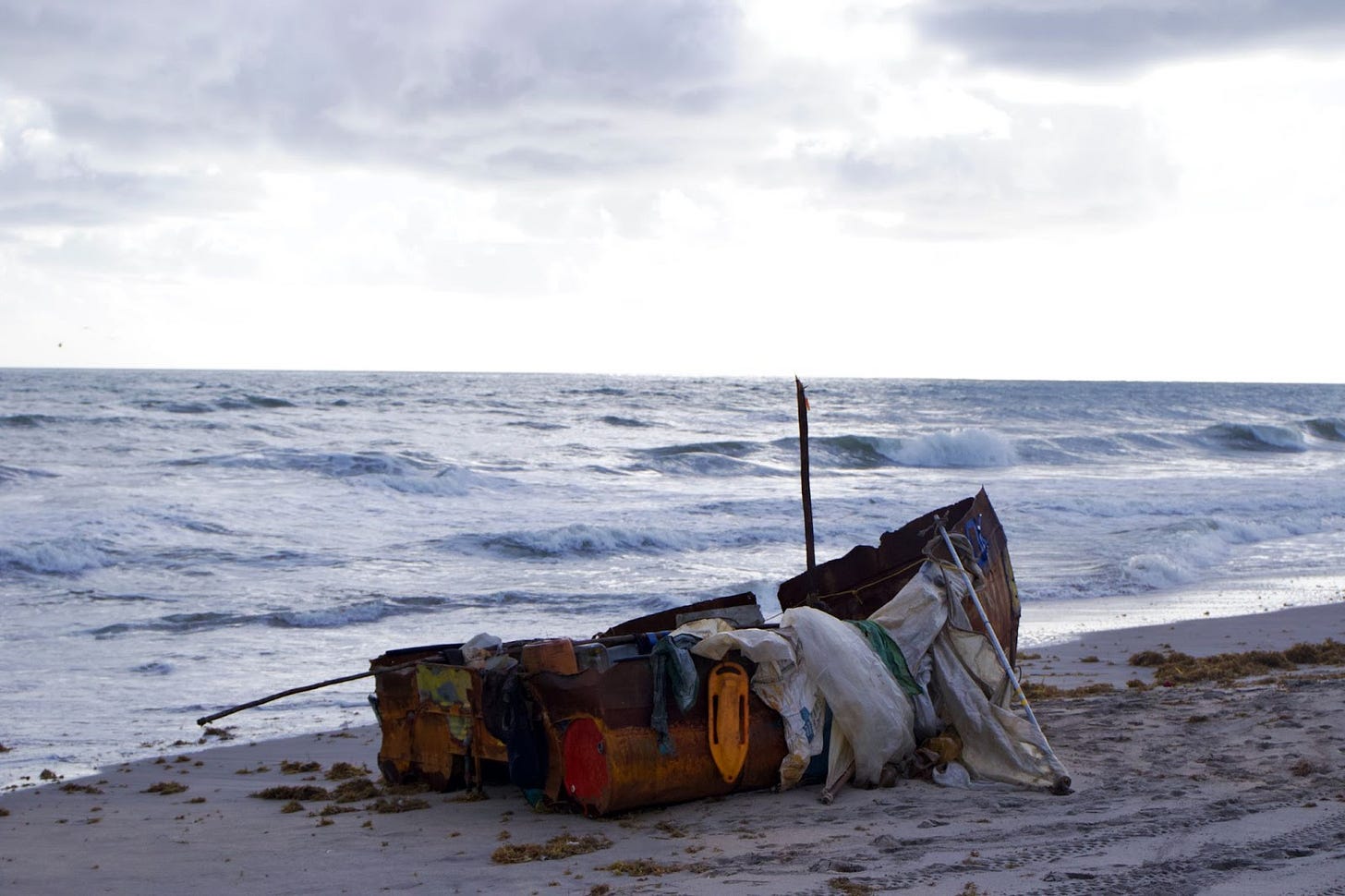
We’ve been tracking Haiti’s slow decline into anarchy for the past few months, and I’m sad to say things continue to worsen, prompting some citizens to risk their lives fleeing by sea to other countries. The government has failed to protect its people or adequately provide a structure in which people can thrive and violent gangs have taken over. Mass protests, murders, looting, and rampant crime have overwhelmed the country with the United Nations now considering direct intervention by deploying soldiers to calm the chaos. On top of all of this, Haitian refugees are fleeing the nation at an alarming rate by any means necessary.
Over 96,000 Haitians fled Port au Prince, the capital of Haiti with many fleeing the country altogether due to the nation’s slow collapse into a state run by violent gangs. Thousands risk their lives on boats made from oil drums crudely welded together, Styrofoam rafts, with sails fashioned out of tarps hoping to make the 800 mile journey to Florida in a boat no larger than a small pickup truck.
I came across one of these vessels on a remote beach not too long ago. It had washed ashore without inhabitants. The bow of the boat was marked “OK” in blue tape–a sign that the U.S. Coast Guard found it, and checked it. Whether or not there were any surviving refugees on it is something we’ll never know. As of October, the Coast Guard has stopped nearly 4,000 immigrants in U.S. waters, no doubt there are thousands more that died at sea.
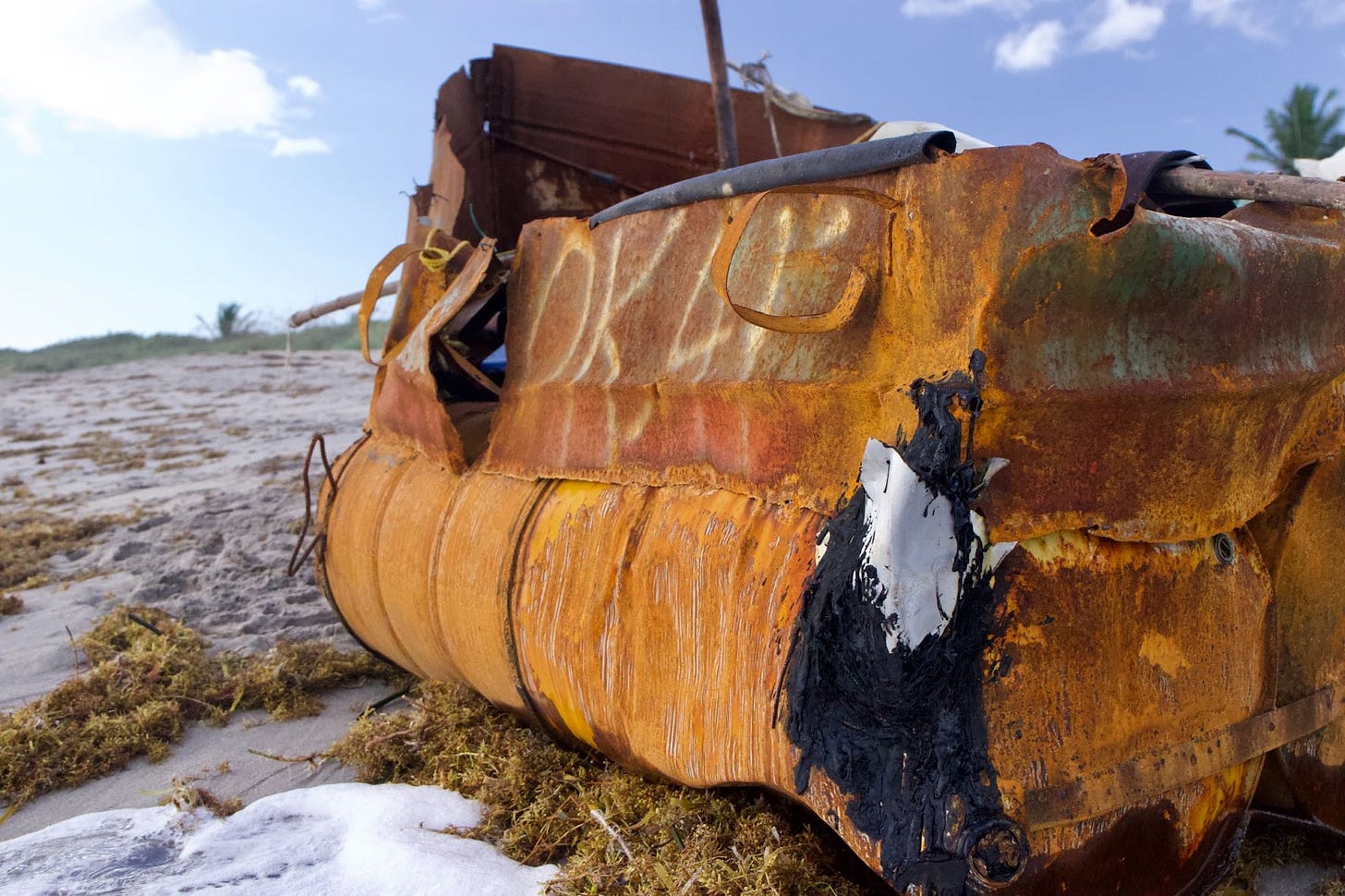
The vessel reeked of diesel and was filled with empty jugs, some that must have carried water and others fuel. Shoes, hats, and other personal goods floated in the ankle-deep mix of diesel and water that now filled the boat. A snapped mast stood tall above, fashioned from a thin wooden pole that once held up a tarp turned sail; now drooping over the railing of the boat. The thought of traveling 800 miles on a collection of oil drums generously referred to as a boat, with no visible means of navigation, is the best way to understand how dire the situation in Haiti really is.
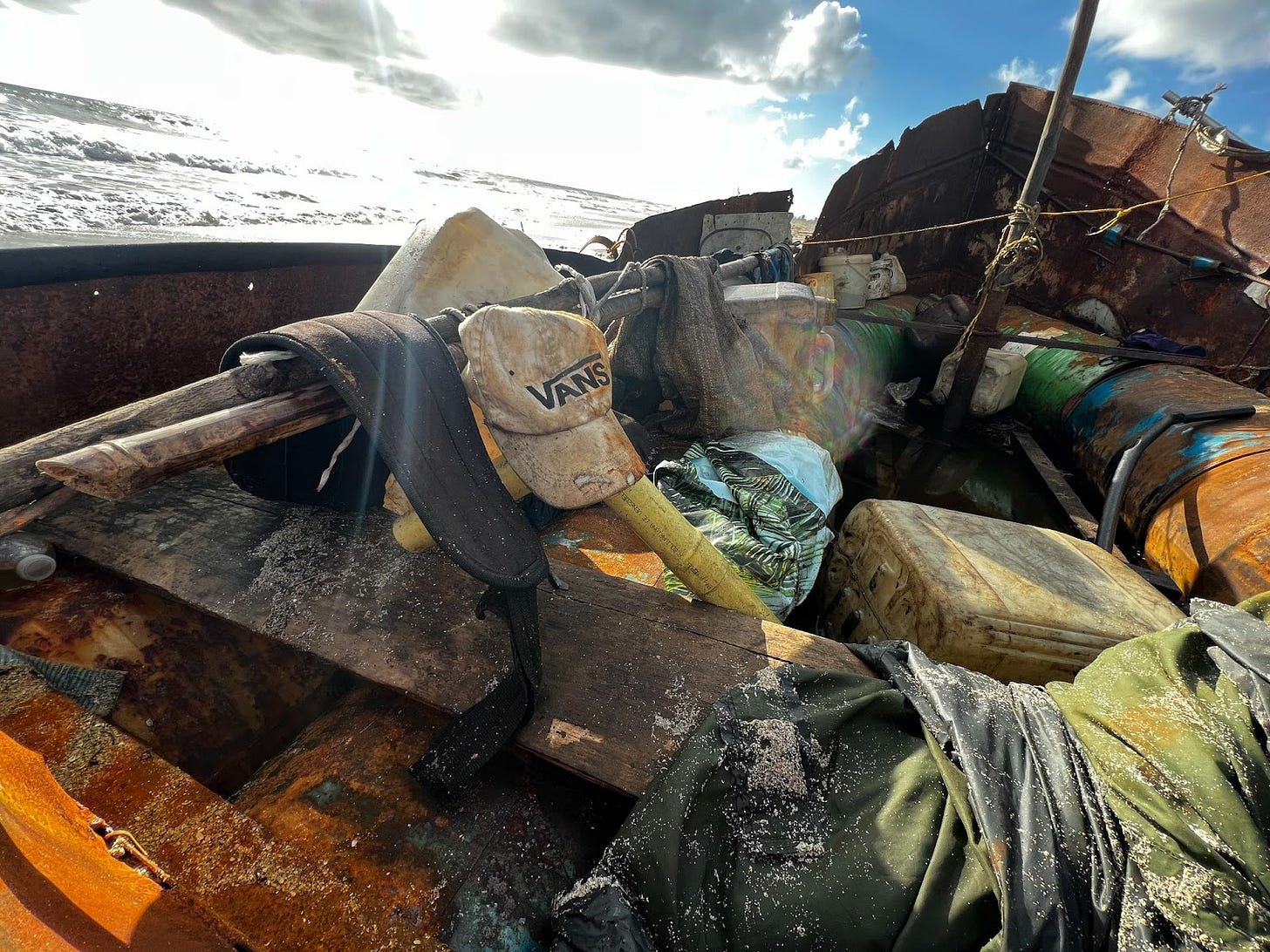
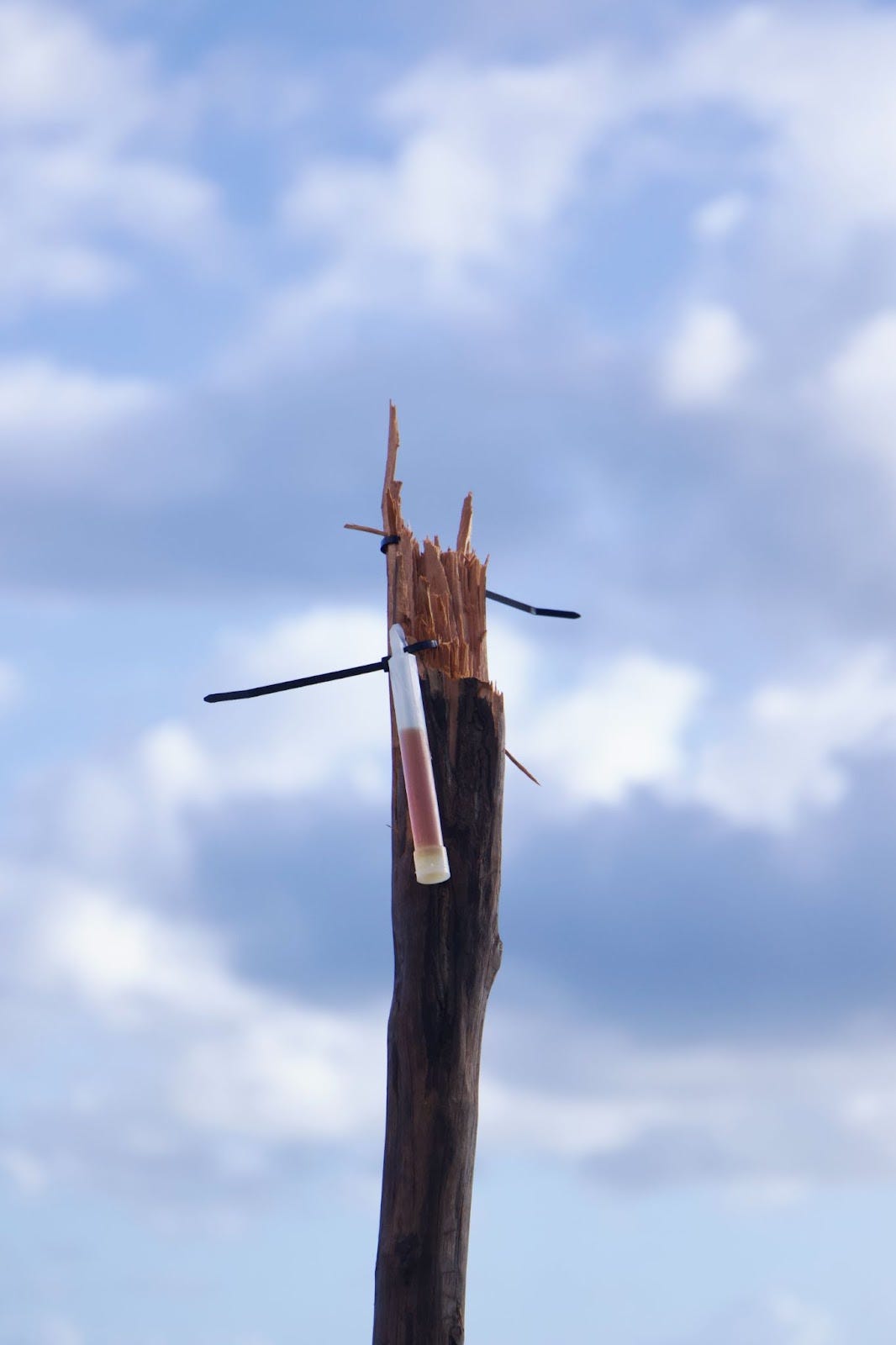
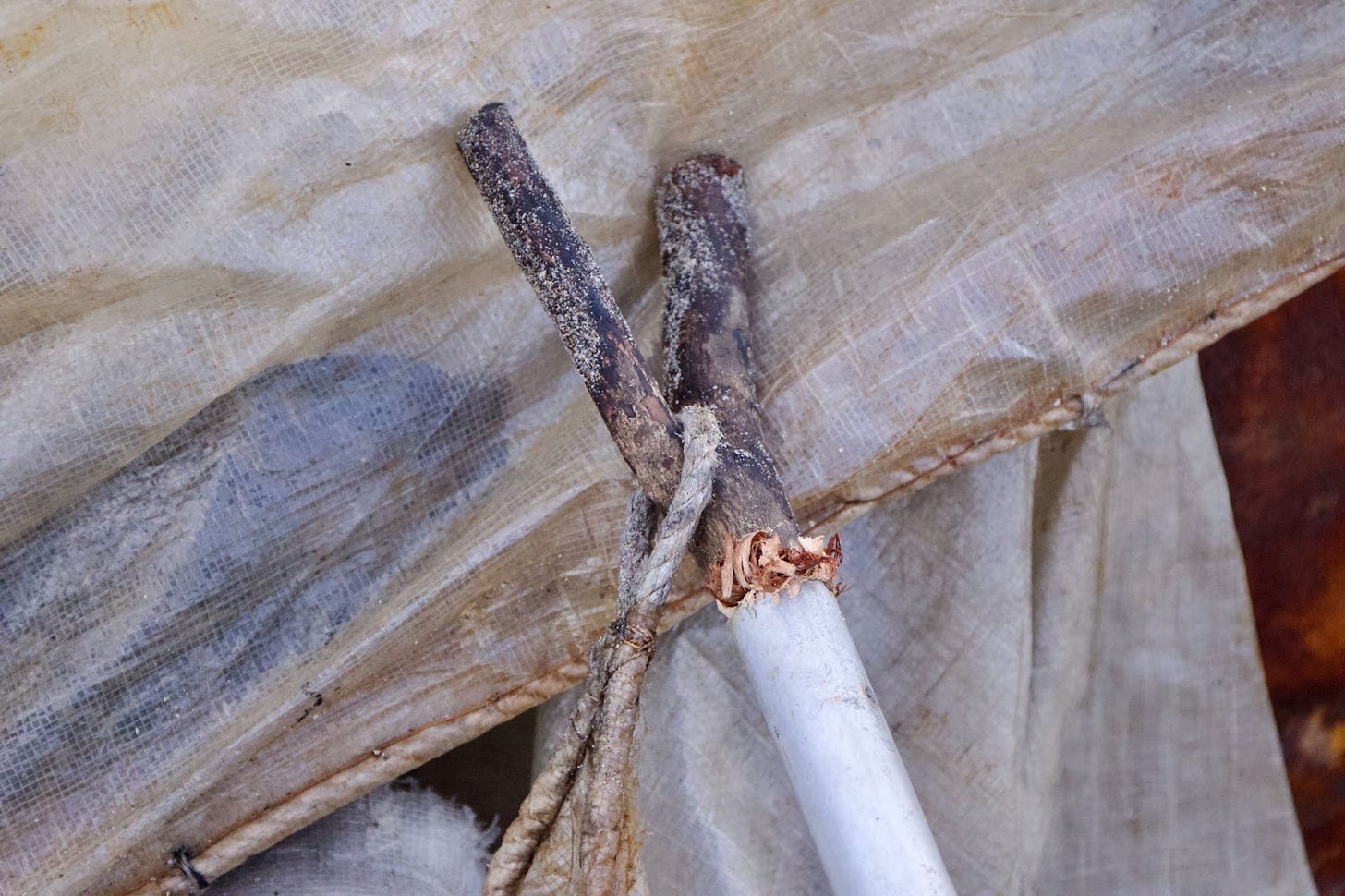
To further paint a picture of what Haitians are fleeing from - gangs have blockaded the island’s main fuel port, protestors were arrested resulting in armed gangs raiding the jail and releasing the prisoners, a former presidential candidate was gunned down alongside his bodyguard by warring gangs, and gangs continue attempting to assassinate journalists. Some analysts even believe wealthy Haitians are financing gangs to further their influence.
The U.N. is considering a strike force to end the fuel blockade but is struggling to find a leader. The U.N.’s last foray into Haiti lasted 13 years, ending in 2017, and is remembered for inducing a cholera epidemic and rampant sexual abuse of minors by some troops making it even more difficult to earner support for any type of mission. It seems impossible for the nation to recover without some type of external involvement and the situation will only continue to devolve until that happens, with the citizens paying the price1.
Brazil’s Presidential Election to be Decided by ~2% Margin
We are just days away from Brazil’s presidential election where leftist former president Luiz Inacio Lula da Silva (known colloquially as Lula) is facing off against the incumbent conservative, and sometimes controversial, President Jair Bolsonaro. The race is extremely close with polling from October 25th-27th showing a 2% margin of error - essentially meaning this election is as close as it gets.
The two faced off in their final debate Friday night where both candidates dedicated their time to swaying voters and reducing margins as much as possible. The topic of the debate was focused primarily around economic policy and ways to uplift those struggling financially. Lula pulled punches highlighting inflation and decreased purchasing power of Brazil's currency, the Real and Bolsonaro’s failure to adjust monetary policy accordingly. Lula’s most impactful statements came as he commented on Bolsonaro’s reaction to questions, drawing attention to the fact he looked rattled, implying it was no way for a president to act. Bolsonaro handled questions and committed to raising minimum wage within a year of reelection, claiming the COVID-19 pandemic was what caused much of the stress on families, and that he had a plan to restore the nation’s economic security.
The election results will have a significant impact on Brazil, with such close polling a massive number of citizens will undoubtedly be left dissatisfied with the result. With Lula’s leftist beliefs and policy alongside Bolsonsaro’s traditional and staunchly conservative views, the country’s path forward is entirely dependent on who takes power as a result of the October 30th polling. As always, it is the people of Brazil who will feel the impacts of this result the most regardless of their political leaning2.
Venezuela’s Oil Production Is Crippled by U.S. Sanctions
Venezuela has the largest crude oil reserves in the world, and oil producers are abandoning sites at an alarming rate due to strict U.S. sanctions. Despite rising fuel demand and prices around the world foreign partners are giving up on Venezuelan oil production. Venezuela’s state-owned oil and natural gas company “Petroleos de Venezuela, South America'' or PDVSA has updated its rules now allowing foreign partners to leave by relinquishing or selling their shares and forgoing debt payment and unpaid dividends.
So far, eight total oil partners have left, accepting the extreme terms, with another 44 giving up stakes since 2018. Other partners have retained their stakes but allowed projects to go fully inactive due to the stringent regulations from the U.S. and resulting inability to make them financially viable. The sanctions imposed by the U.S. massively restrict PDVSA partners ability to access capital and limit markets where Venezuelan oil can be sold.
So long as these sanctions remain, Venezuelan oil production will remain critically low and the sale is even more difficult. This is an extreme example of how sanctions can massively hinder a nation and its people from thriving, the nation currently is achieving just over 36% of their daily oil production goal, and with production trending downward. Venezuela’s government has treated its people poorly, and sanctions to punish the government stunt the government’s cash flow, but the people as well. With no plan to reform PDVSA, Venezuela's oil reserves will remain underutilized with the world relying on OPEC oil3.
Caribbean Cocaine Trafficking Maintains Despite Massive Drug Seizures
The Royal Navy seized $28,000,000 worth of cocaine earlier this week off of the coast of the Dominican Republic. The smuggler’s payload weighed in at 880 pounds and was the second large drug bust this week. The U.S. Coast guard seized $26,000,000 of cocaine near Puerto Rico just two days prior. The amount of cocaine traveling through the Caribbean more than tripled from 2010 to 2014, and the volume hasn’t fallen off since.
Due to increased security and anti-drug trafficking measures alongside the improvement in drug detection technology on the Mexico-U.S. border, cartels are leaning into maritime trafficking to get drugs to the world’s largest illicit drug market - the United States. As mentioned in previous issues of the Bulletin, cartels are also now increasing human trafficking efforts across the U.S. Southern border due to its lower risk to their bottom line. Reports show that drug enforcement agencies only ever detect an estimated 6% of drug traffic, leaving a huge margin of success. For every boat caught by authorities, there are a dozen that we don’t even know about.
Maritime drug trafficking isn’t new. Regardless, the complexity of the operations are increasing along with the volume of drugs being moved. As long as U.S. consumers continue purchasing drugs, traffickers will find a way to get them here4.
New Colombian President’s Unique Approach to Curbing Cocaine Production
The United States is pressing its ally Colombia as projections indicate the nations will produce the highest level of cocaine in two decades according to the United Nations Office on Drugs and Crime (UNDOC). UNDOC’s annual report indicates possible output is up 14% to 1400 metric tons and agricultural land sown with coca is up 43%.
The nation’s new President Gustavo Petro, believes the famed War on Drugs is completely “irrational” and has called for alternative methods to curb drug use and trafficking. From strict regulation around narcotics, to habilitation programs, and focusing police efforts on arresting drug leadership, his recommendations are unique given the nation’s intertwined history with cocaine production. Growing Coca, the plant that is the base ingredient for cocaine, is one of the only feasible ways to make a reasonable living in many parts of Colombia, due to the fact the producers pay reasonably well for the crop. The United Nations alongside other partner nations have long recommended investing money into communities in an effort to transition the local economies to being based in legal lines of work thus undermining cocaine producer influence.
President Petro’s statements indicate a new approach combined with the old that places more emphasis on supporting communities and beyond dumping money into them by providing alternative avenues and responses from the government to strengthen communities and their local economy. That all being said, he was only recently elected, whether he has success with his ideas is yet to be seen. What is clear is that without a connected and functioning economy with adequate opportunity, drug production numbers will continue to increase alongside demand5.
Keep reading with a 7-day free trial
Subscribe to Lethal Minds to keep reading this post and get 7 days of free access to the full post archives.





